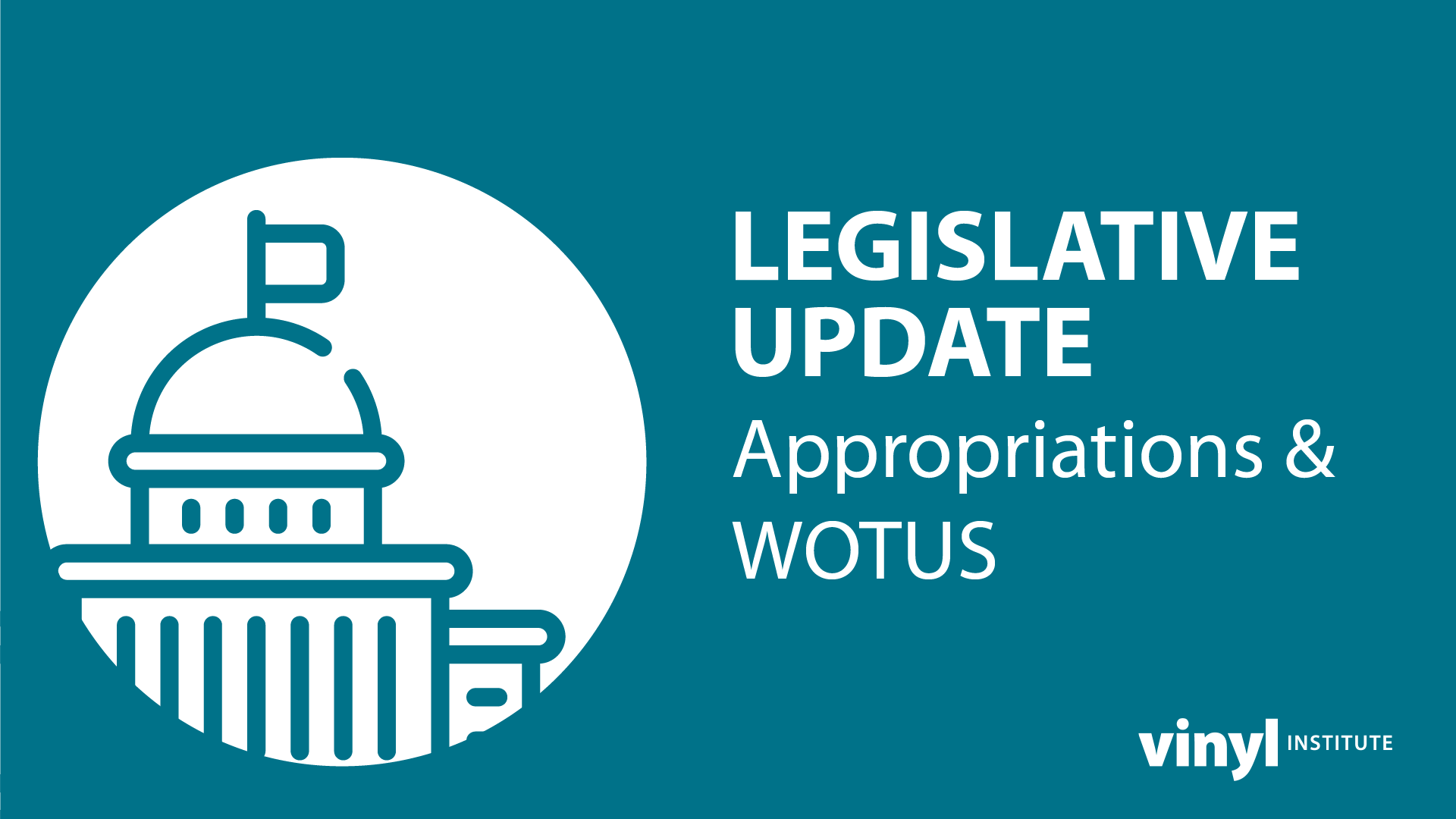This website uses cookies so that we can provide you with the best user experience possible. Cookie information is stored in your browser and performs functions such as recognising you when you return to our website and helping our team to understand which sections of the website you find most interesting and useful.
News
Legislative Update: Appropriations & WOTUS
House FY22 Appropriations
The House voted, 219-208, to approve an FY22 appropriations bill that includes funding for the $11.4 billion for the Interior-Environment (H.R. 4372) and Energy-Water (H.R. 4549) FY22 spending bills on July 29, as part of the $620 billion seven-bill “minibus” package. As outlined in the last legislative update, the two measures will increase funding for the U.S. Army Corps of Engineers (USACE) at $8.66 billion and the Department of Interior and Bureau of Reclamation water infrastructure programs at $1.97 billion. The Interior-Environment bill includes $1.87 billion for the Clean Water State Revolving Fund (CWSRF) and $1.36 billion for the Drinking Water State Revolving Fund (DWSRF). The Committee made multiple recommendations and provided funding to support and study various recycling programs and conduct data-collection on single-use plastics, as well as funding for water infrastructure.
Senate FY22 Appropriations
The Senate Appropriations Committee on Aug. 4 voted, 25-5, to advance a $53.6 billion FY22 Energy and Water Development bill. Funding for the measure is $3 billion less than the House-passed spending bill but the same amount that the President requested. The draft Senate Energy-Water bill is $1.9 billion more than current spending levels. Senate Minority Leader Mitch McConnell (R-KY), Sens. John Kennedy (R-LA), Bill Hagerty (R-TN), Marco Rubio (R-FL), and Mike Braun (R-IN) voted against the legislation. The committee bypassed a subcommittee markup and approved the bill along with the Agriculture and Military Construction-Veterans appropriations bills.
The U.S. Department of Energy (DOE) would receive $45.3 billion, with the USACE allocated to receive $8.7 billion, $906 million more than current spending levels. Significant funding to the Department of Interior Bureau of Reclamation will go to states plagued with drought and in need of emergency funding. $1.96 billion, up to $300 million from fiscal 2021. In addition, the bureau would also receive $450 million in emergency funding to address the “severe drought” in the American west.
The Committee recommends in the Energy-Water committee report up to $5 million for university-led research to increase recycling rates for polyethylene plastics and develop conversion of waste polyethylene to more recyclable and biodegradable plastics.
In the Senate agriculture bill, the Committee directed that the Economic Research Service (ERS) complete a lifecycle analysis (LCA) for various biobased products, including chemicals, polymers, plastics, and fibrous materials, so consumers and industry have better information regarding the environmental benefits and impact of the products when compared with traditional products in the marketplace. The Committee requires the U.S. Department of Agriculture to publicly present its findings on the existing lifecycles analyses and environmental impact data across various categories, submitting its report to Congress no later than 1 year after the date of enactment. It also requires the Agriculture Secretary to appear before the Committee in an in-person briefing.
The dispute over spending levels between the two chambers sets the stage for contentious negotiations later this year when appropriators must reconcile compromise bills. With little time left on the congressional calendar to work out differences after the August recess, Congress will need to pass a stopgap funding measure by Oct. 1 to prevent a partial government shutdown.
EPA and USACE Programs
On July 31, the Senate Environment and Public Works (EPW) Committee held a hearing titled, “Examining the Benefits of Investing in USACE Water Infrastructure Projects” as the committee starts its biennial process of crafting a Water Resources and Development Act (WRDA). The hearing focused on the funding needs for the USACE as it works through a backlog of projects to improve inland waterways and protect against future floods and climate change effects. According to EPW Committee Chairman Tom Carper (D-DE), the Army Corps of Engineers has more than $109 billion worth in backlogged projects – more than 15 times the annual budget for the USACE. No government officials testified at the hearing.
The EPA and USACE announced a series of public meetings and comment sessions they say would fulfill their promise to craft a “reasonable” definition of waters of the United States (WOTUS) that reflects input from all stakeholders. In a July 30 statement, EPA Administrator Michael Regan said the agency is “committed to crafting an enduring definition of WOTUS by listening to all sides so that we can build on an inclusive foundation, but Republican senators on the EPW Committee, led by panel Ranking Member Shelley Moore Capito (R-WV), are pressing EPA and the Corps to provide more transparency on the rulemaking effort. In a June 30 letter, the Senators say that officials have given “incomplete” responses and “failed to provide substantive answers” to their previous requests. Furthermore, they state that EPA officials have made “repeated inconsistent public statements to the press and before Congress” about the decision to repeal and replace the Trump-era definition. On July 29, Capito, along with other Republican leadership and members on the panel, introduced the Navigable Waters Protection Act of 2021, which would codify the NWPR rule and definition of WOTUS.
Administrator Regan announced on Aug. 2 the members of its newly reconstituted 47-member Science Advisory Board (SAB). Regan’s selections included assignments to new subcommittees on the science of environmental justice and climate change, reflecting Biden administration priorities, in addition to existing panels on chemical assessment, drinking water, economics, agriculture, and radiation. In the spring, Regan dismissed the entire Trump-era SAB, and the related Clean Air Scientific Advisory Committee (CASAC), citing the need to restore “scientific integrity” to the board’s advice and oversight of EPA policy after the Trump administration. Returning will be Alison Cullen, a professor of environmental policy at the University of Washington, who Regan chose to chair the panel.


